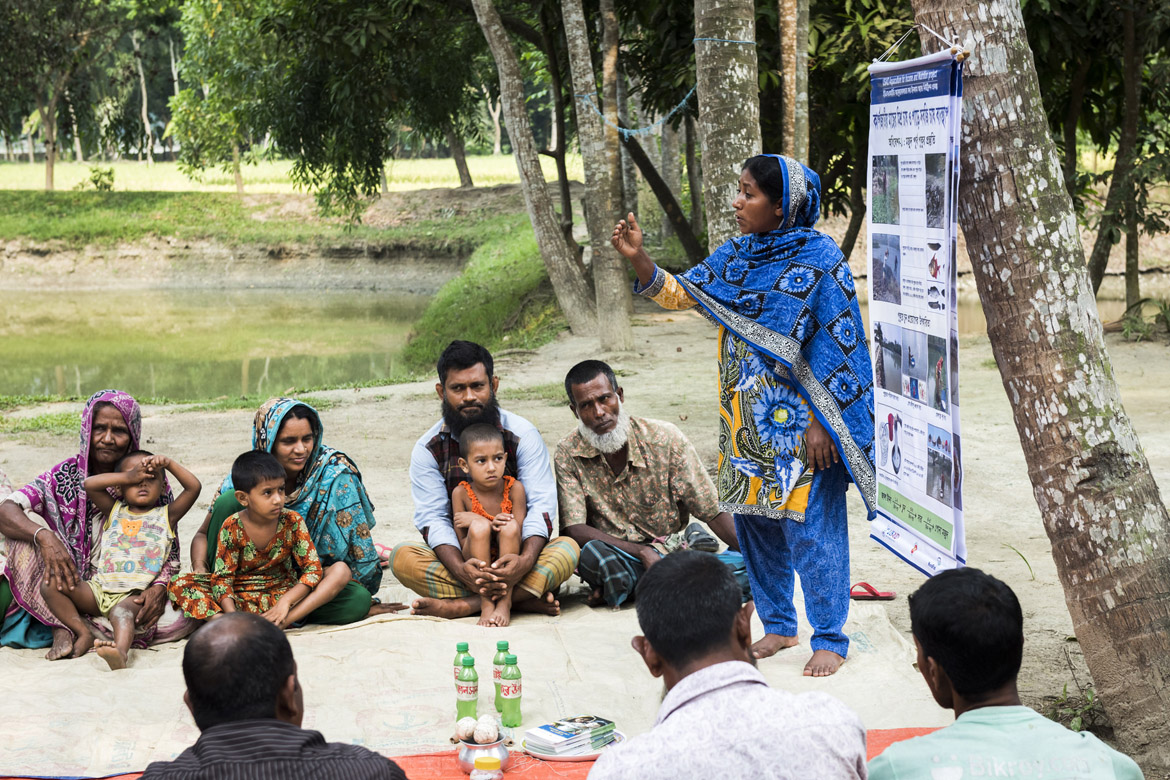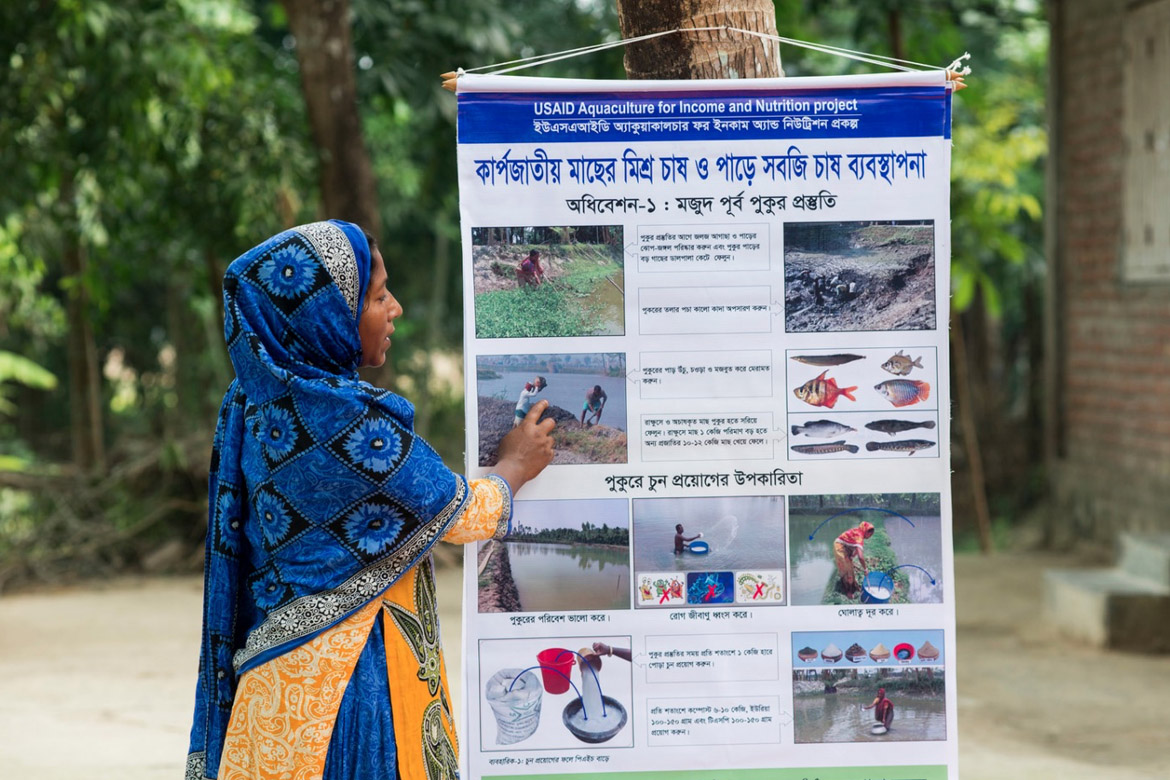-

Private sector facilitators:
A new information
source for fish
farmers in Bangladesh
Local fish and seed suppliers in rural Bangladesh are being trained as private sector facilitators to provide aquaculture advice to information-poor fish farmers
In rural Bangladesh, many fish farmers have limited access to information about aquaculture. Without reliable advice, farmers can make poor choices about how to manage their farm.
“Before, I did not know how to farm fish properly, how to do the next step or how much fertilizer to use,” explains fish farmer Rowson Ara from Gazalia village, Barisal. “We experienced both profits and losses. But most of the time it was losses.”
To improve farmers’ access to information, the USAID-funded Aquaculture for Income and Nutrition project is training existing fish feed and seed suppliers to become private sector facilitators (PSFs).
These facilitators, also known as local service providers, give advice and training to local fish farmers, in addition to their existing business services. Since 2015, the project has trained over 4660 facilitators.
The training was helpful for us. We expanded our business and right now our [village’s] farmers are happier than they used to be” – fish farmer Rowson Ara
There are 10 types of facilitators including hatchery owners, nursery owners, fry hawkers, feed millers and seed sellers. To become a facilitator, individuals receive a total of nine days training that covers technical skills in their area of expertise and facilitation skills.
Fatima Begum, who has run her family’s fish nursery business since her husband passed away, became a PSF after attending training in 2015. Armed with new technical knowledge, she started running free training sessions for local farmers.
“Before, farmers did not know much about fish farming. But since they received training they are all happy and interested in how they can do well from fish farming,” she says.
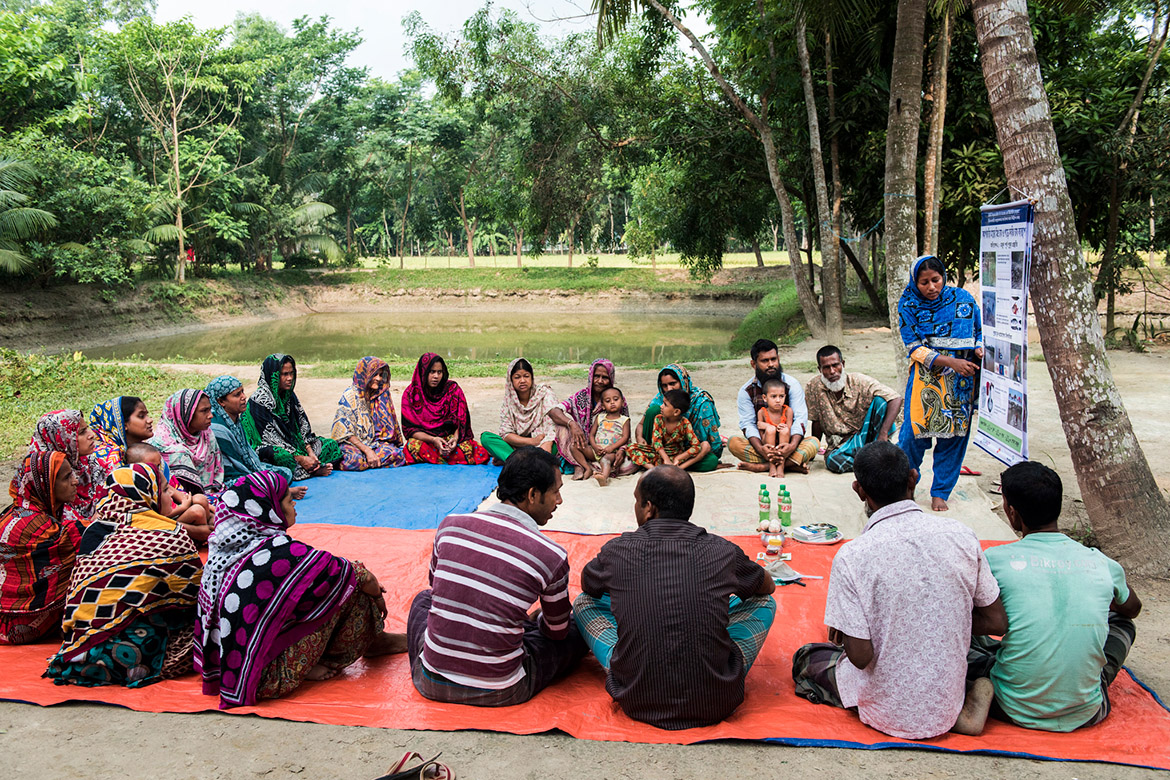
For fish farmer Rowson, attending the training helped boost her knowledge of good fish farming practices.
“I used to have the wrong idea about fish farming, now it’s all clear,” says Rowson, who has also trained as a PSF. “The training was helpful for us. We expanded our business and right now our [village’s] farmers are happier than they used to be.”
In addition to giving training, facilitators are available for one-on-one consultations to troubleshoot any problems a farmer might have.
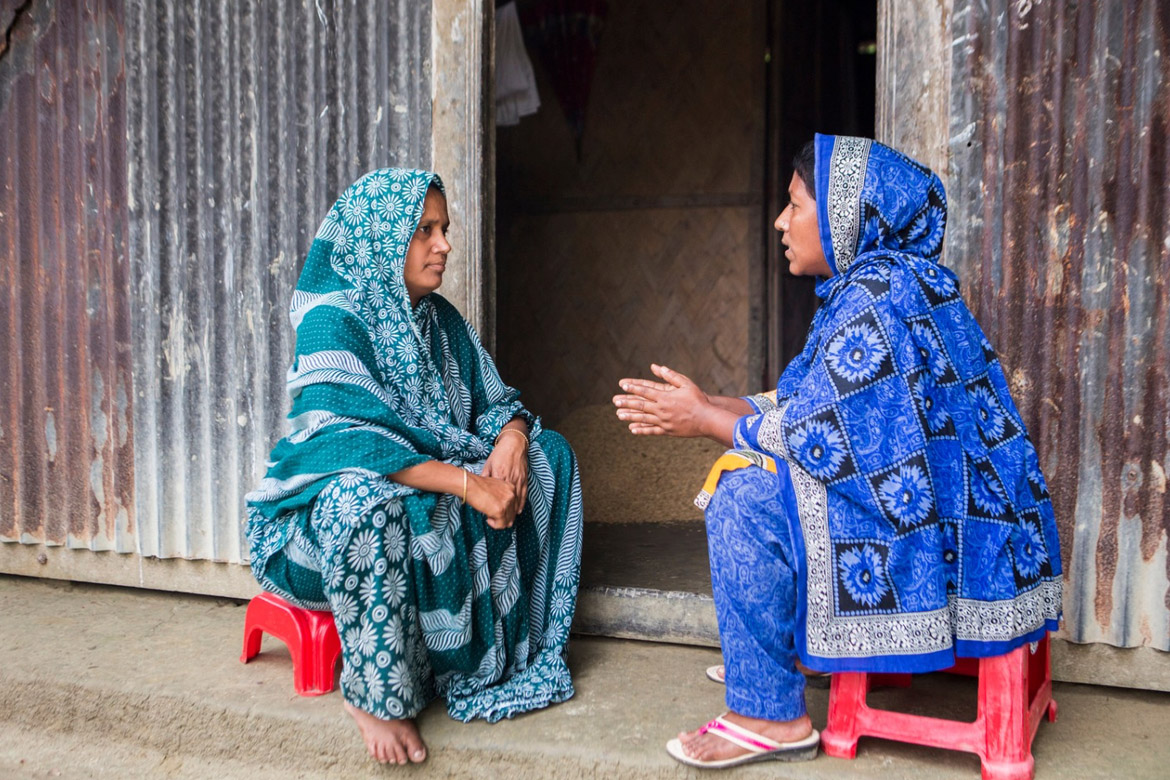
“I had the knowledge before of how to make a pond, but if there is any problem I go to her for advice,” explains fish farmer Mojammel Haque, who lives next door to Fatima.
“She advises me what I should use in my pond and the conditions that are good for the fish and water,” he says.
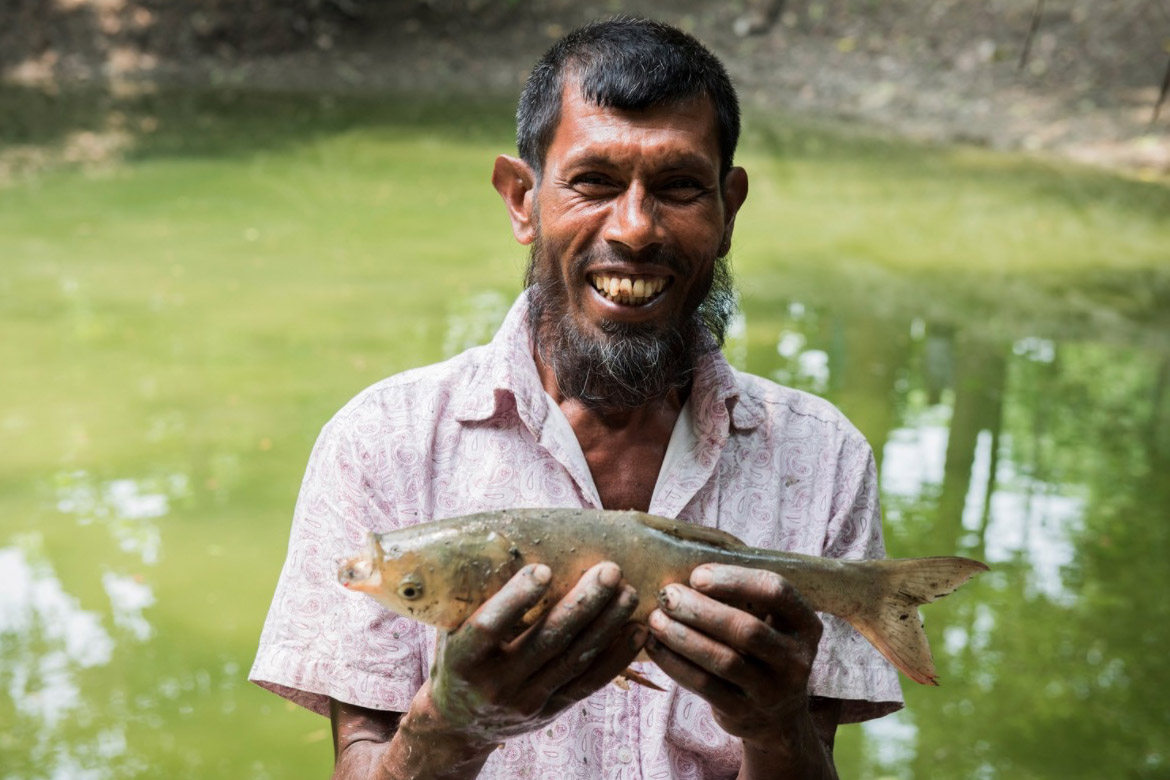
Because PSFs are based within the community, fish farmers have easy and reliable access to information about aquaculture, saving them time and money searching elsewhere for answers.
“Sometimes the government fisheries officer is not in the office or he is busy. For that reason we go to Miss Fatima and take her advice,” says Mojammel.
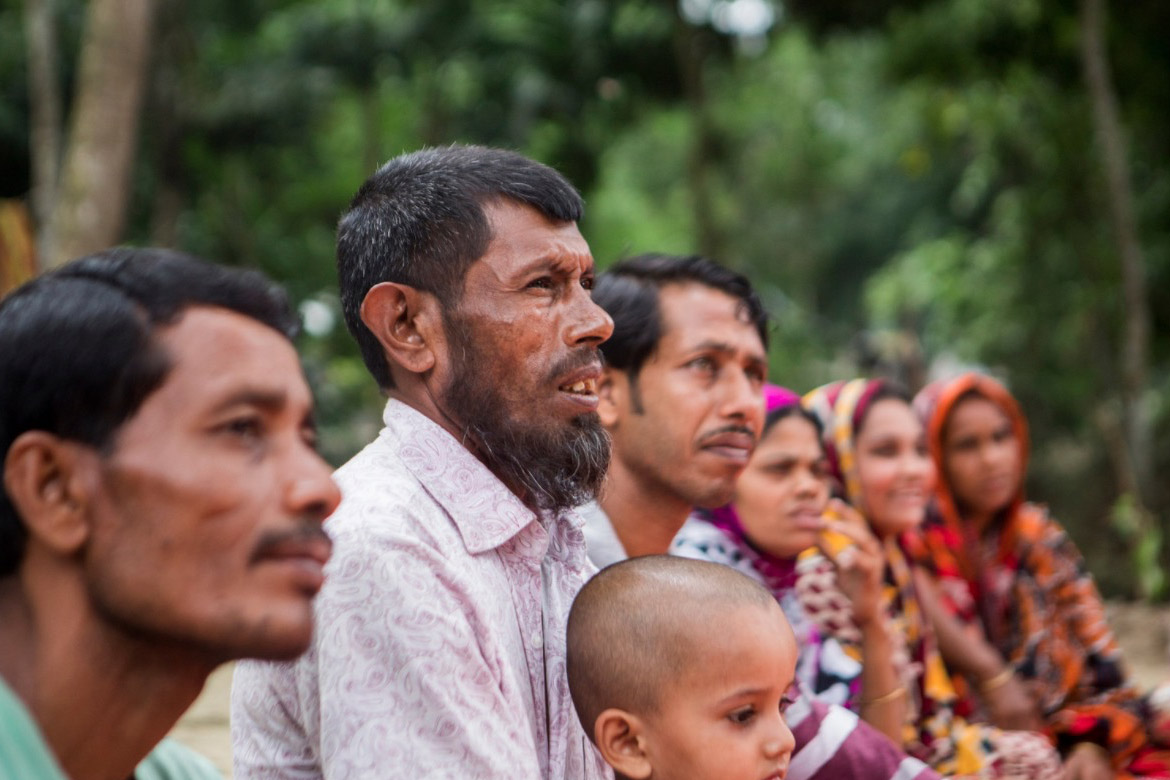
To help farmers find PSFs in their area, the project has developed an agricultural yellow pages application that lists the contact details of all facilitators. Farmers can use the smart phone app to search for a facilitator based on their expertise and location.
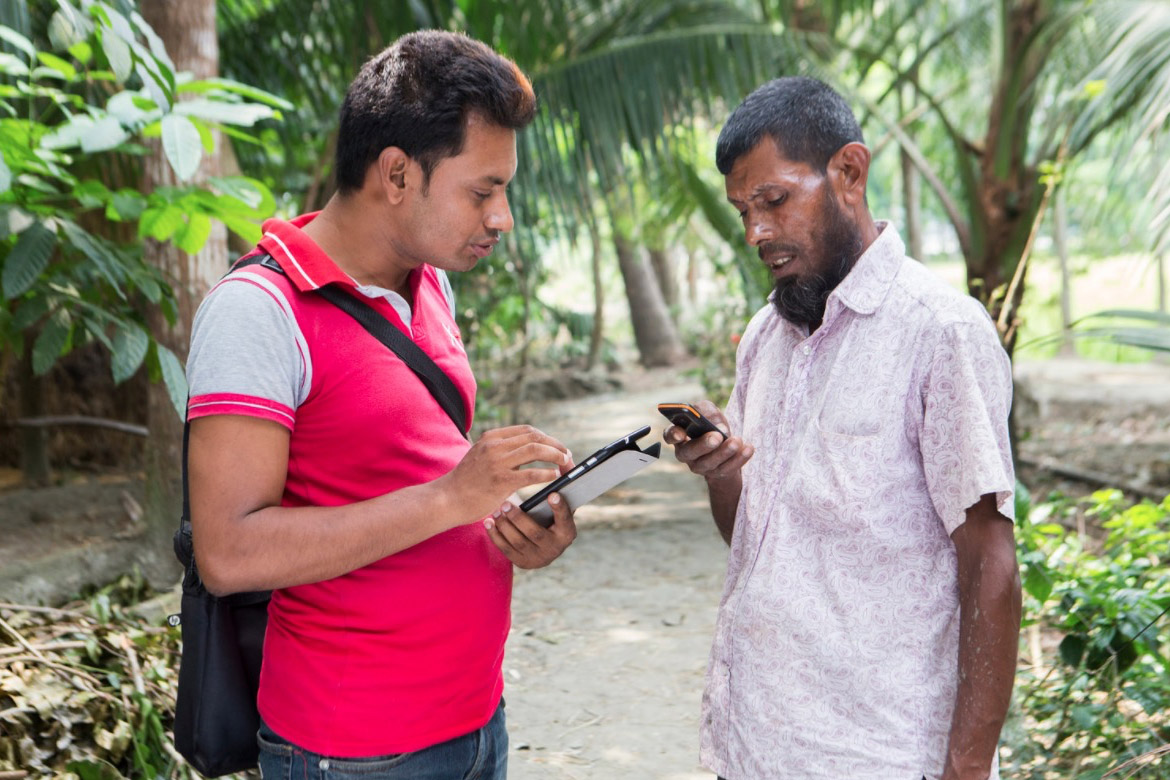
The PSF model doesn’t just benefit farmers. By becoming a PSF, individuals like Fatima can grow and improve their business.
“Since getting the training from WorldFish, I have expanded my business step by step. Now, I have learned how to clean my pond properly and there is no gas in my pond anymore.”
“After becoming a PSF, I’m ahead of any problems,” says the mother-of-three.
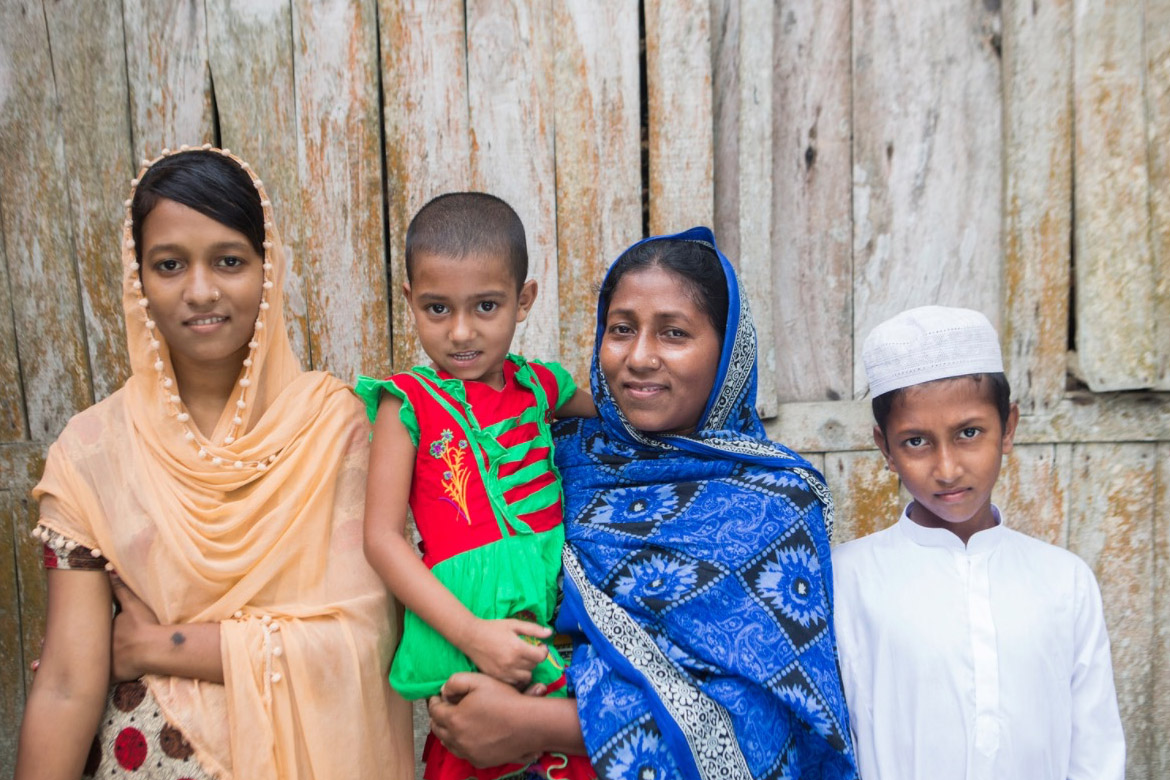
In 2016, each facilitator is expected to train 60 farmers, resulting in 60,000 farmers being trained.
Because the facilitators were existing businesses, once the AIN project ends in late 2016, the facilitators will continue to self-sustain their operations.
For information-poor households in rural Bangladesh, the private sector facilitator model is enabling access to information and inputs at the time and in the place they need it, helping them get the best results from their aquaculture ponds.
Project
Aquaculture for Income and NutritionDonor:
USAIDPartners:
Community Development Center, Society for People's Education, Empowerment and Development Trust, Bangladesh Shrimp & Fish Foundation, Bangladesh Fisheries Research Institute, Department of Fisheries, BangladeshRelated sustainable development goals



Tags
Bangladesh, Asia, small-scale aquaculture, fish farming, training, sustainability, livelihoodsImpacts
private sector facilitators trained since 2015
average number of farmers each facilitator will train in 2016
expected farmers will receive training from a PSF in 2016
Photo credits - WorldFish.


